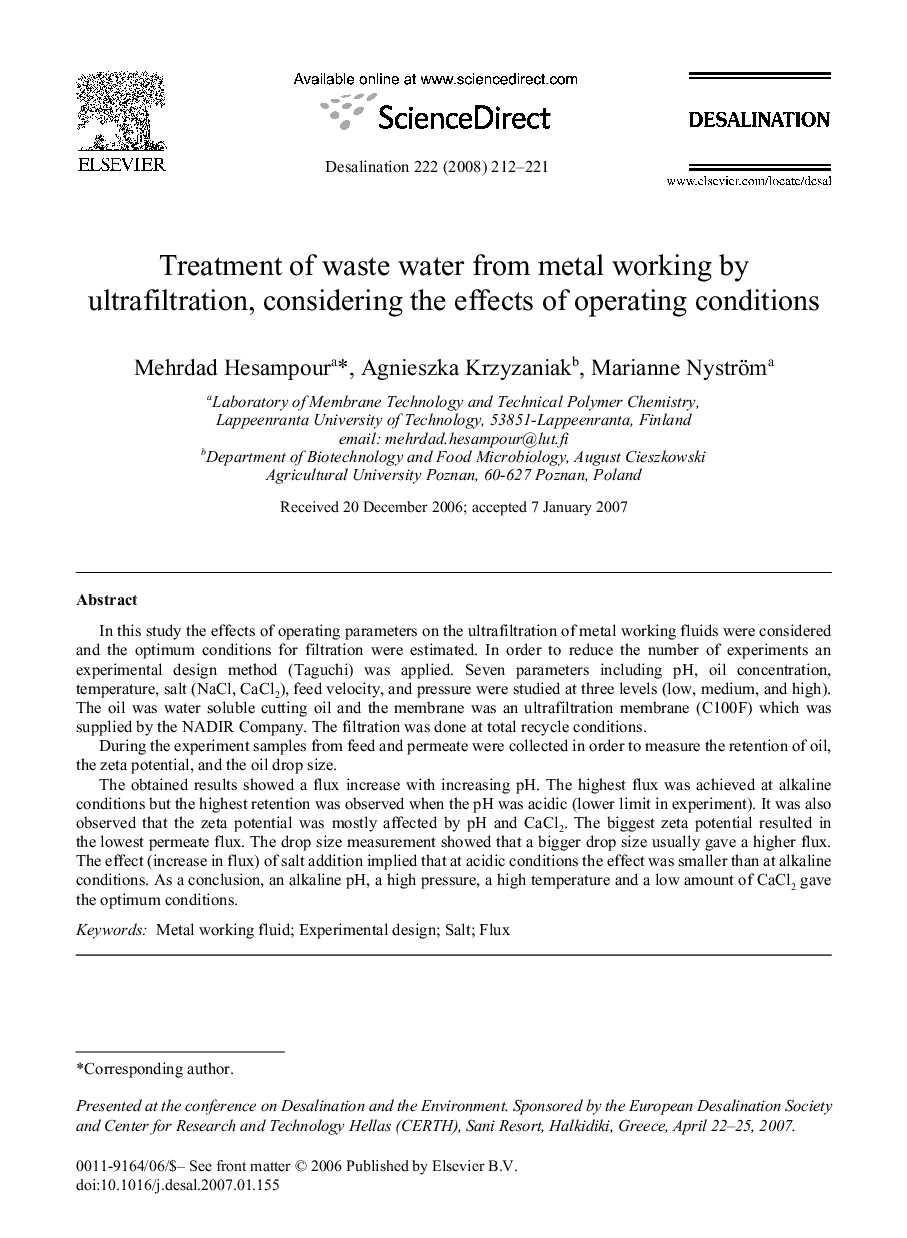| Article ID | Journal | Published Year | Pages | File Type |
|---|---|---|---|---|
| 627306 | Desalination | 2008 | 10 Pages |
In this study the effects of operating parameters on the ultrafiltration of metal working fluids were considered and the optimum conditions for filtration were estimated. In order to reduce the number of experiments an experimental design method (Taguchi) was applied. Seven parameters including pH, oil concentration, temperature, salt (NaCl, CaCl2), feed velocity, and pressure were studied at three levels (low, medium, and high). The oil was water soluble cutting oil and the membrane was an ultrafiltration membrane (C100F) which was supplied by the NADIR Company. The filtration was done at total recycle conditions.During the experiment samples from feed and permeate were collected in order to measure the retention of oil, the zeta potential, and the oil drop size.The obtained results showed a flux increase with increasing pH. The highest flux was achieved at alkaline conditions but the highest retention was observed when the pH was acidic (lower limit in experiment). It was also observed that the zeta potential was mostly affected by pH and CaCl2. The biggest zeta potential resulted in the lowest permeate flux. The drop size measurement showed that a bigger drop size usually gave a higher flux. The effect (increase in flux) of salt addition implied that at acidic conditions the effect was smaller than at alkaline conditions. As a conclusion, an alkaline pH, a high pressure, a high temperature and a low amount of CaCl2 gave the optimum conditions.
